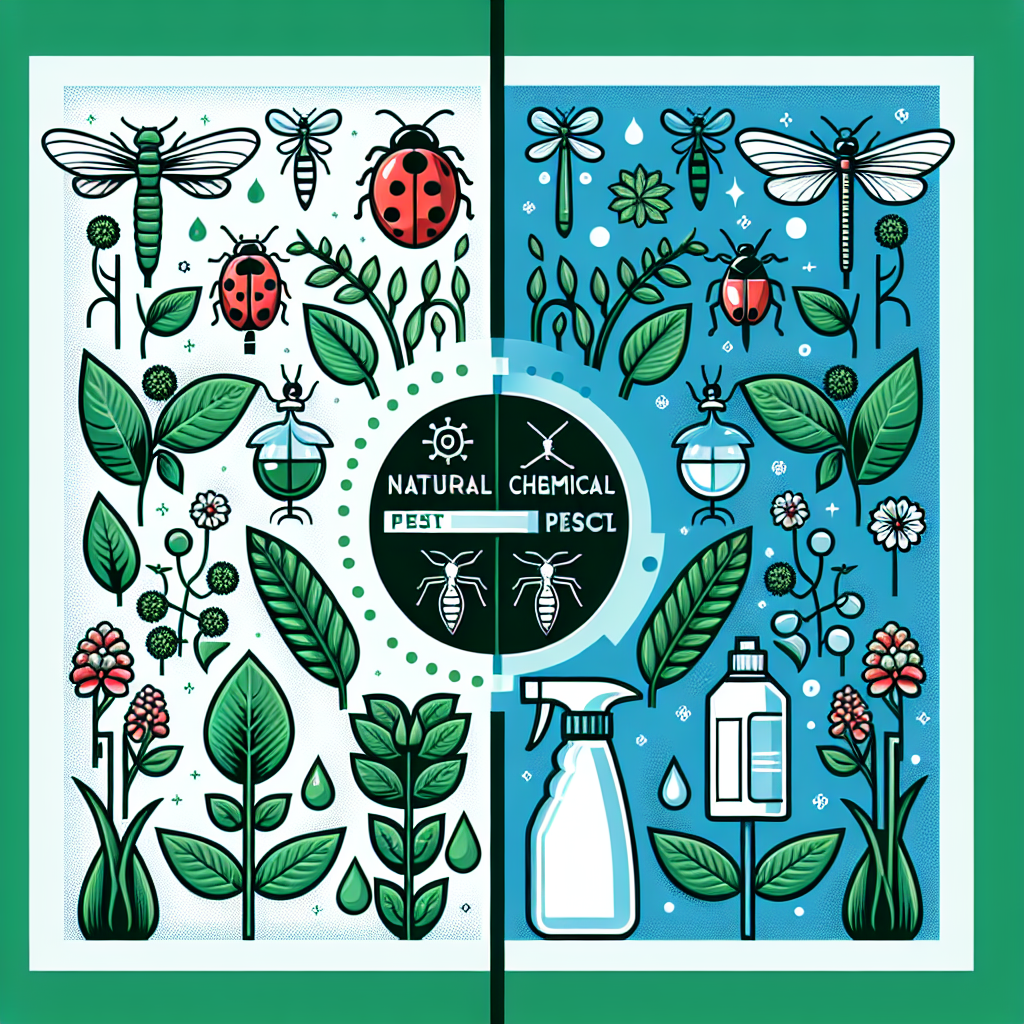When it comes to maintaining a healthy home and garden, pest control is a vital aspect that homeowners cannot overlook. With the constant battle against pests like ants, spiders, and termites, it’s essential to choose an effective method for pest control. In this guide, we will explore the nuances of natural versus chemical pest control methods, helping you make an informed choice that aligns with your values and living environment.
Understanding Pest Control: The Basics
Before diving into the specifics of each method, it’s crucial to grasp what pest control entails. Pest control is the regulation or management of a species defined as a pest, which can be harmful to health, environment, or economy. Effective pest control strategies aim to eliminate pests while minimizing risks to non-target species and the ecosystem.
The Rise of Natural Pest Control Methods
What Are Natural Pest Control Methods?
Natural pest control methods, often referred to as organic pest control, include strategies that use environmentally friendly techniques to deter or eliminate pests. Many of these methods are derived from plants or naturally occurring substances and are often biodegradable.
Benefits of Natural Pest Control
- Eco-Friendly: Natural pest control methods have a lower impact on the environment, reducing chemical runoff and pollution.
- Safety for Humans and Pets: Many chemical pesticides pose health risks to humans and pets. Natural methods typically involve ingredients that are safer to use around households.
- Sustainability: By fostering a healthier ecosystem, natural pest control promotes biodiversity and sustainable living practices.
Common Natural Pest Control Techniques
- Essential Oils: Oils derived from plants, such as peppermint or tea tree oil, can repel insects.
- Diatomaceous Earth: A powdery substance that can kill soft-bodied insects by dehydrating them.
- Neem Oil: Extracted from the seeds of the neem tree, this oil is effective against a wide range of pests.
- Companion Planting: Growing specific plants together can deter pests naturally; for example, marigolds help repel nematodes and other unwanted visitors.
Chemical Pest Control Methods: An Overview
What Are Chemical Pest Control Methods?
Chemical pest control involves using man-made or synthesized pesticides to eradicate pests. These products can range from sprays and baits to foggers and gels.
Benefits of Chemical Pest Control
- Speed and Effectiveness: Chemicals often provide faster results compared to natural methods, making them ideal for severe infestations.
- Wide Range of Options: There are numerous chemical products available targeting a variety of pests, allowing for targeted treatment.
- Longer-Lasting Effects: Many chemical treatments offer prolonged effectiveness, minimizing the need for frequent applications.
Common Chemical Pest Control Products
- Insecticides: Target specific types of insects and are available in various applications – sprays, granules, or powders.
- Herbicides: Used to control unwanted plants or weeds that may attract pests.
- Rodenticides: Chemical baits designed specifically for the eradication of rodents.
Weighing the Pros and Cons
Natural Pest Control: Pros and Cons
Pros:
- Safe for pets and children.
- Minimal environmental impact.
- Promotes long-term health of the ecosystem.
Cons:
- May require more frequent applications.
- Often slower to show results.
- Limited effectiveness for severe infestations.
Chemical Pest Control: Pros and Cons
Pros:
- Quick action against severe pest problems.
- Variety of formulations for specific pests.
- Effective for larger infestations.
Cons:
- Potential health risks for humans and pets.
- Environmental concerns due to chemical runoff and toxicity.
- Can lead to pest resistance over time.
Making the Right Choice for Your Home
Choosing between natural and chemical pest control methods largely depends on your specific situation, personal beliefs, and the extent of the pest problem. For minor issues or preventive measures, exploring natural methods may be your best bet. However, for serious infestations where quick action is required, chemical options may prove necessary.
Tips for a Balanced Approach
- Integrated Pest Management (IPM): Combining natural and chemical methods, IPM emphasizes understanding pest behavior, habitat, and the life cycle to implement effective pest control strategies.
- Always Read Labels: Whether you’re using natural or chemical products, ensure to read labels and understand the application methods, potential risks, and safety precautions.
- Consult Professionals: When in doubt, consult pest control professionals to evaluate your situation and recommend the best approach.
Conclusion
Navigating the world of pest control doesn’t have to be daunting. By understanding the fundamental differences between natural and chemical pest control methods, you can make a more informed choice that reflects your values and needs. Whether you prioritize environmental sustainability or immediate effectiveness, there are options available to ensure your home remains pest-free and healthy. After all, a happy home is a pest-free home!


